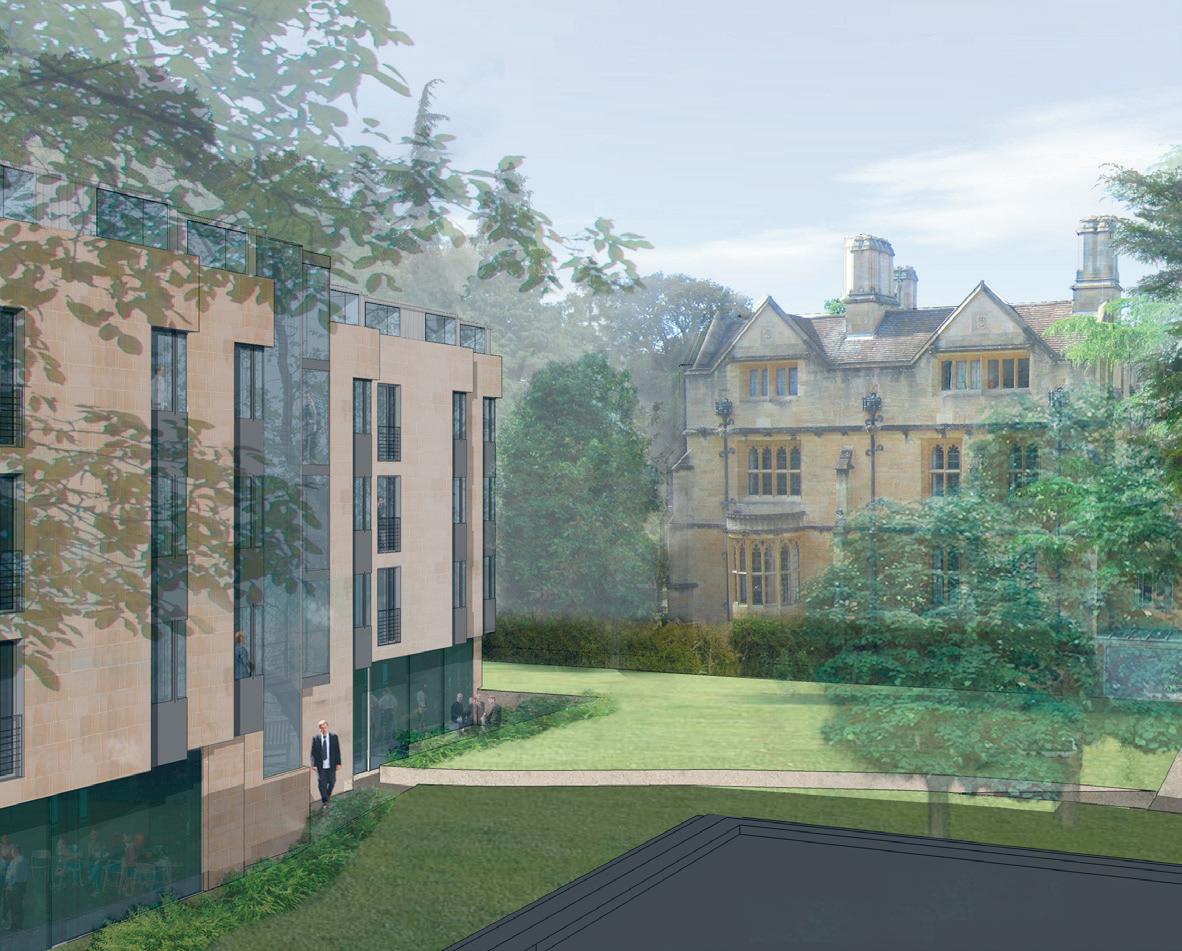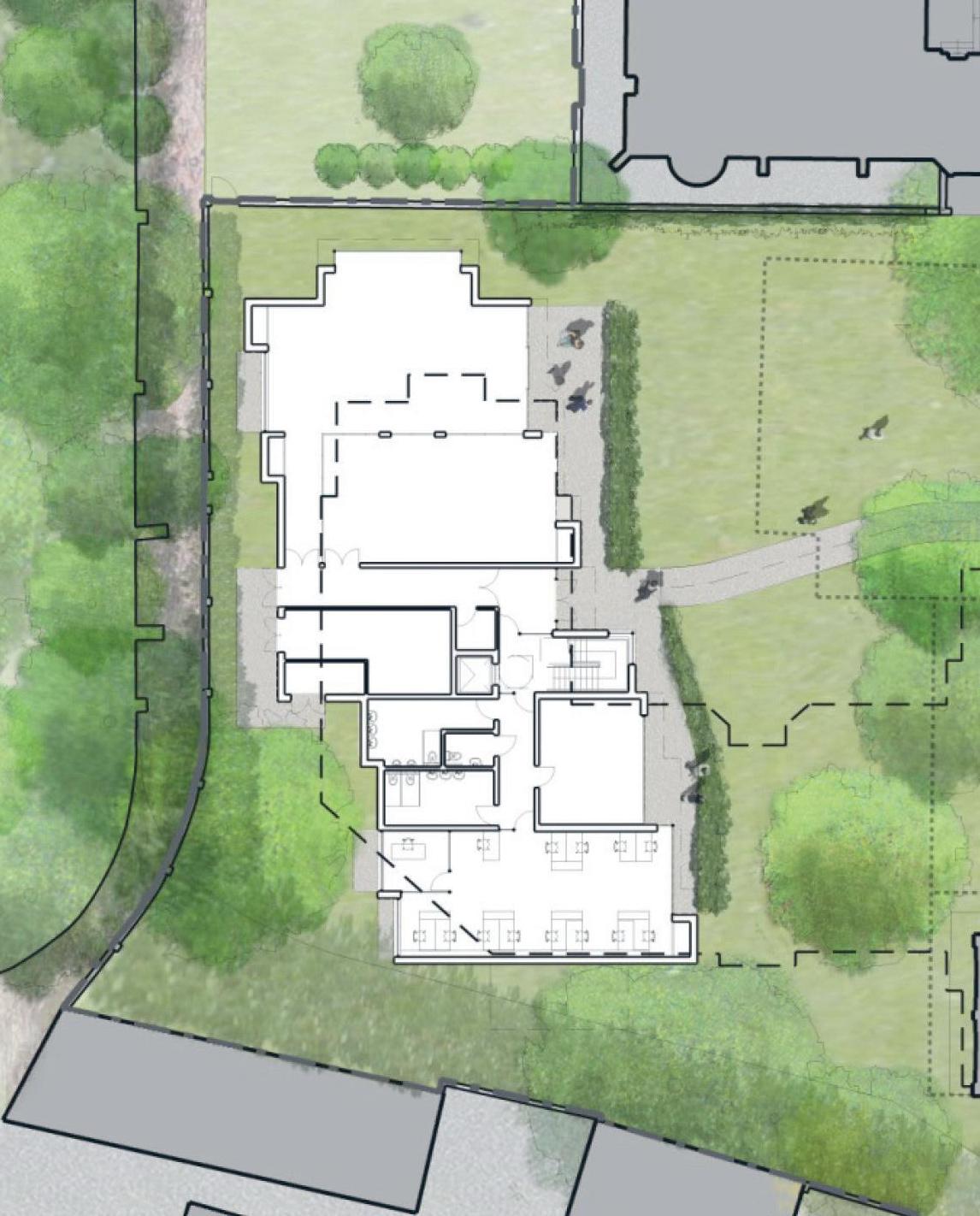
4 minute read
Building huMan rights
Nancy Eisenhauer Fellow in Law
The University of Oxford’s Institute of Human Rights (IHR) has a revolutionary vision: to act as a bridge between human-rights scholars of the highest calibre and human-rights practitioners working in a myriad of environments around the world, in order to advance simultaneously the quality and impact of human-rights work.
Advertisement
Although visionary, the work of the Institute of Human Rights is not a mere vision. Today, the study of human rights cuts across every discipline in the University. It is, in the words of one scholar, ‘the common moral language’ of our times. Yet, until now, that research and teaching has not been coordinated in a centralised way at Oxford, nor has there been a concentrated effort to link the mass of the University’s research and teaching to the world of the human-rights practitioner. The Institute of Human Rights is designed to create synergy – ‘the interaction of two or more agents to produce a combined effect greater than the sum of their separate effects’ – both within the University and in the wider community, for the ultimate benefit of both.
The IHR will act not only as an intellectual focus for the human-rights work of the Law Faculty and University, but as a physical arena for such work as well. It will have a permanent home in a new building at Mansfield College, with its own staff and sustainable funding.
As a result, the IHR will be able to:
• Host and fund visiting human-rights scholars;
• Provide funding and space for clinical teaching;
• Provide funding and space for graduate students to work;
• Accommodate conferences, seminars and moot courts on topical human-rights issues.

Principal Helena Kennedy with the architects’ model for the IHR
Moreover, by bringing academics and practitioners together within its intellectual and physical space, the IHR aspires to draw on outside resources to supplement faculty teaching in the area of human-rights law by, for example:
• Offering graduate scholarships to support outstanding students with a strong interest in human rights, who would not otherwise be in a position to fund their studies from their own resources;
• Creating links with law firms and other legal practitioners working on human-rights cases, providing resources and financed internships for committed and skilled Oxford students;
• Offering placement assistance for Oxford law graduates in legal-aid firms and solicitors’ firms and barristers’ chambers with human-rights work;
• Further developing undergraduate and graduate clinical programmes in human-rights law;
• Assisting faculty members in creating new University course options in human-rights law.
But why will the IHR be housed at Mansfield? Because the Fellows of the College see an opportunity not only to create a new building at Mansfield to provide additional student housing, but to enhance the intellectual environment at and reputation of Mansfield in a way that fits with the ethos of the College. Mansfield College has been, since its foundation, engaged in the practice of expanding and advocating ‘human rights’ in the context of higher education. It was the first non-Church of England college at Oxford, founded immediately after the religious restrictions were lifted in the 19th century. Mansfield’s very existence, therefore, arose out of a struggle for greater religious tolerance within academia.
Perhaps more important, the College was the first to create a successful ‘access’ programme to recruit Oxford students from all backgrounds: a programme that led the way and continues to lead the way in making higher education a real option for students from all backgrounds. And, in 2011, the Fellows of the College elected Baroness Helena Kennedy, a respected human-rights lawyer and Member of the House of Lords, as the College’s Principal – recognising that she shares a commitment not just to excellence in education, but to excellence in education for all.
The IHR Campaign seeks to raise funds sufficient to allow the IHR to conduct its core work in perpetuity, but also to provide it with a permanent and custom-designed space in a new building at Mansfield College. The College will own the new building – designed by award-winning architect, the late Rick Mather – thus representing a significant asset for the future of Mansfield College and creating much-needed student accommodation, a lecture theatre, common rooms and conference facilities.
The IHR will take up one floor, providing a real space in which to expand and enhance the University’s existing human-rights research and clinical programmes. The benefit to the IHR goes beyond the ground floor of the new building. At Mansfield College, the IHR and its researchers will find a community of like-minded individuals who are anxious to integrate them into their community. And the Fellows of the College believe that having a first-rate research institute on site will enhance the intellectual atmosphere and opportunities in College for both faculty and students. In other words, the IHR at Mansfield College is a part of the vision of the College itself, to continue to support human rights in higher education in a concrete and constructive way, for the benefit of our students as well as those outside of our community. The IHR at Mansfield College is a part of the vision of the College itself, to continue to support ‘ human rights in higher education in a concrete and constructive way. ’











